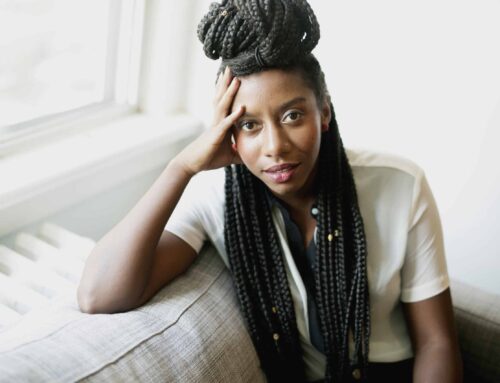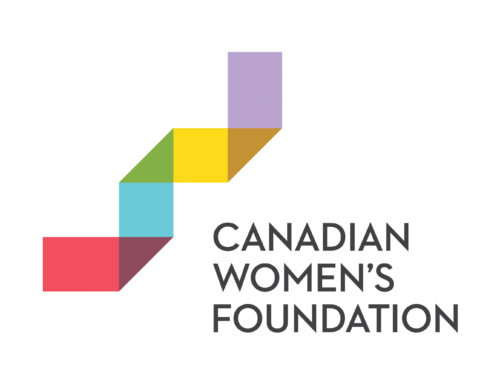
AT JUST SEVEN years old, Kathy Tuccaro started running away from home.
She says she was first molested as a young child living in foster care, and continued to experience verbal, physical, and sexual abuse during her childhood, as well as throughout her adulthood life.
She went on to have a daughter and become a nurse, but was haunted by her past. She struggled with self-harm, toxic relationships, and alcoholism.
“I had a lifetime of untreated trauma and abuse,” she says. “I had chosen to pack it away and not deal with it.”
At about 40, she hit rock bottom. She found herself living on the streets for a week, following a homeless man who knew how to survive on the streets.
“The turning point came when he slapped me on the back and said, ‘This is the life! Live it, love it!’ I had a sudden moment of clarity and I said, ‘No, this is not my life!’ And I actually stomped my foot. Only to say it louder and with more conviction this time.”
She began a women’s recovery program, which helped her to deal with the abuse and start rebuilding her life. Along the way, she learned about Women Building Futures in Edmonton, Alberta, which provides training in the skilled trades to women living on a low income.
Although it wasn’t easy, Kathy got accepted into a heavy equipment operator program and now drives a massive truck in a mine in northern Alberta. “I love my job, and when I come to work, I think ‘Wow, I’m here no matter what I’ve been through.’ I’ve conquered.”
She is self-publishing a book about her life, and speaks at schools and community organizations about recovering and transforming her life.
In the following Q&A, she talks about how Women Building Futures helped her regain confidence, embark on an empowering new career, and find many ways to give back.
Q: Where were you in your journey when you enrolled in the Women Building Futures program?
A: After the recovery program, I knew I couldn’t go back to nursing, because it was too easy to take care of other people’s problems and not my own. I needed a career where I could focus more on me, but at 42, how do you do that?
I didn’t know where to start, so I attended a career-planning workshop to figure out what I liked. After all the aptitude tests, it turned out that I was geared for working as a heavy equipment operator.
I just about fell off my chair, because I thought, “That’s a man’s job.” I’m 42, I’m a woman, and I’ve never even looked at equipment. I actually said, “Your test is wrong.” But the woman’s answer to me was, “If only you would believe in yourself, you’ll see that it’s right.” She’s the one who sent me to Women Building Futures.
The day I walked in, I found out about a heavy equipment operator program being sponsored by Imperial Oil. They would choose 16 applicants, but there were about 170 women applying for the program, so I thought, “Why would they pick me? What can I do to stand out?”
As part of the application, there was a math test and I hadn’t done math in 20 years. So even though I was in the recovery program during the day, I attended a math tutoring program at night, and ended up getting 96% in math. That’s how dedicated I was to being accepted.
Q: How was your experience in the program?
A: My self-esteem was really shaky when I started, but my desire for a better life overruled any fear and insecurities I may have had. The fact that it was a women-only program also gave me a sense of freedom; I guess you could say it was a sisterhood, so I felt safer and more able to be myself, as opposed to being constantly on guard around a bunch of men.
The training also helped give me the self-confidence that I needed. When you step onto a piece of equipment and excel at operating it — I can’t even put into words what that did for me. That feeling of empowerment, of no matter what I’ve been through in the past, “Yeah, I’ve got this! Look at me go!”
The picture on the cover of my book is of my first day working at Imperial Oil, and I’m literally crying standing next to the truck. I’m looking up at this thing thinking, ‘How in the world did I end up here?’
I was thinking about how not very long before that I was standing in the company of ‘Toothless Joe’ during that week of homelessness, now here I was standing beside the biggest truck in the world! How life can change when you make a committed decision to help yourself.
Q: After you started your job, you initiated a work boot recycling program. What inspired you to do that?

When I started working here, I noticed all these used boots laying around that no one wanted anymore, and I thought, “I wonder if I could recycle these?”
I approached a mine manager and asked about working together to recycle the boots to help people who are struggling. It started out as a little cardboard box recycling box, and they have since built me two giant bins for collecting boots. I’m now up to 1,600 boots collected.
They get distributed to organizations that help people obtain their Safety Tickets in order to find better employment.
Q: Where are you in journey today? Why do you feel it’s important to share your story?
A: I know what Women Building Futures did for me and how important it was in my transformation and learning to believe in myself.
I go back to that recovery program as well as local women’s shelters and give classes in self-esteem there. I have helped some of the women in that program go to Women Building Futures; one is now a crane operator apprentice, another is a heavy equipment operator. I tell everyone just how important Women Building Futures is in helping change the lives of women in need.
It’s important for me to help lift up those that are hurting, because I was there. Sometimes you just need a role model, someone who actually did it, to say, “Hey, look at her, she was homeless six years ago, look where she is now.”
My life is 360 degrees from where it once was … I’m happily married, my daughter and I are inseparable, I won the job lottery, and I travel speaking at schools and women’s shelters about my story of success.
I’m going to make the best of this second chance and do what I can to inspire those that might just need to hear that you can change your life, that it is possible.
Women Building Futures is a Canadian Women’s Foundation funded program. To learn more about Kathy and her book, which is scheduled to come out in August, go to kathytuccaro.com.







